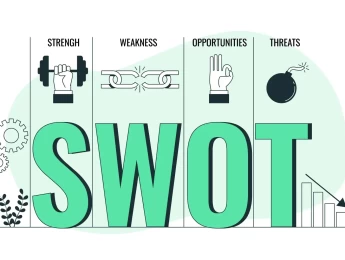Many businesses underestimate the importance of work and product quality. Poor quality can demotivate employees, damage your reputation, and negatively impact profits. In manufacturing, poor quality leads to high turnover, increasing training costs and necessitating higher wages to retain employees. It can also result in defective products, reducing sales and increasing production costs due to repairs and additional materials.
Understanding the Cost of Quality (CoQ) is vital for financial success. Companies that thrive track CoQ consider customer requirements and understand the product journey from production to shelves. Strategically focusing on continuous improvement while staying within budget can increase profits, customer satisfaction, and overall business growth
Upon completion of this course, participants will be able to:
- Analyse and apply cost vs. quality principles.
- Understand the impacts of bad quality on your profits and sales.
- Develop an understanding of your business processes regarding quality.
- Create a quality matrix to assess your products.
- Understand the impacts of poor quality on your employees, training and turnover.
- Develop leadership qualities in line with quality principles.
- Undergo a risk assessment and identify the priority areas for quality improvement.
- Assess your future roadmap and enable quality-focused project mapping.
- Monitor your costs and implement change to increase efficiency and quality within your budget.
- Create a quality-focused culture with targets and scorecards for your workforce.
This course is designed for anyone responsible for the business's financial health or implementing strategic project plans to reduce production costs. It would be most beneficial for:
- Business Owners
- Chief Financial Officers
- Project Planners
- Change Managers
- Risk Assessors
- Data Analysts
- Quality Checkers
- Operations Managers
- Financial Personnel
- IT Specialists
- Planners
This course uses various adult learning methods to aid full understanding and comprehension. Participants will review videos and interactive presentations to understand the impacts of poor quality on the wider business.
They will learn the key elements of a positive financial assessment and understand how to properly implement strategic change without affecting budgets. They will then work together in a group discussion to uncover the problem areas in their own operations and understand how they could change the current procedures to create more efficient quality assurance at a lower cost.
Day 5 of each course is reserved for a Q&A session, which may occur off-site. For 10-day courses, this also applies to day 10
Section 1: What Does Quality Mean to You?
- How can good quality affect your business?
- How can poor quality affect your business?
- What quality measures do you currently have?
- How do you monitor quality?
- Quality and performance management.
- Helping your workforce to understand the importance of quality.
Section 2: The Cost of Quality in Your Business
- Your quality milestones.
- What quality meant historically.
- The key change strategies.
- Prioritising your changes.
- The 80/20 method.
- Prevention, appraisal, and failure (PAF).
- Successful CoQ implementations.
Section 3: How to Apply CoQ
- How to apply CoQ to your current quality initiatives.
- Understanding your current risk areas.
- Where are you losing money?
- How to apply CoQ to your future environment.
Section 4: Project & Systematic Change Approaches
- Developing a successful CoQ project.
- Who needs to be involved?
- How can you measure your project’s success?
- Moving over to systematic changes.
- How do the two approaches benefit each other?
Section 5: CoQ Data Analytics & What They Mean
- Reviewing your analytics.
- How to find data directly related to quality.
- Qualitative vs. quantitative data.
- How do the two complement each other?
- Reducing your risks.
- How to lower costs without compromising quality.
- Reviewing your other business objectives.
Section 6: Using CoQ for Continuous Improvement
- Your leadership style.
- Focusing on quality as a key goal.
- Balanced scorecards.
- Managing poor quality performance.
- Moving forward with a quality-focused team.
Upon successful completion of this training course, delegates will be awarded a Holistique Training Certificate of Completion. For those who attend and complete the online training course, a Holistique Training e-Certificate will be provided.
Holistique Training Certificates are accredited by the British Assessment Council (BAC) and The CPD Certification Service (CPD), and are certified under ISO 9001, ISO 21001, and ISO 29993 standards.
CPD credits for this course are granted by our Certificates and will be reflected on the Holistique Training Certificate of Completion. In accordance with the standards of The CPD Certification Service, one CPD credit is awarded per hour of course attendance. A maximum of 50 CPD credits can be claimed for any single course we currently offer.
- Course Code PF1-112
- Course Format Classroom, Online,
- Duration 5 days














